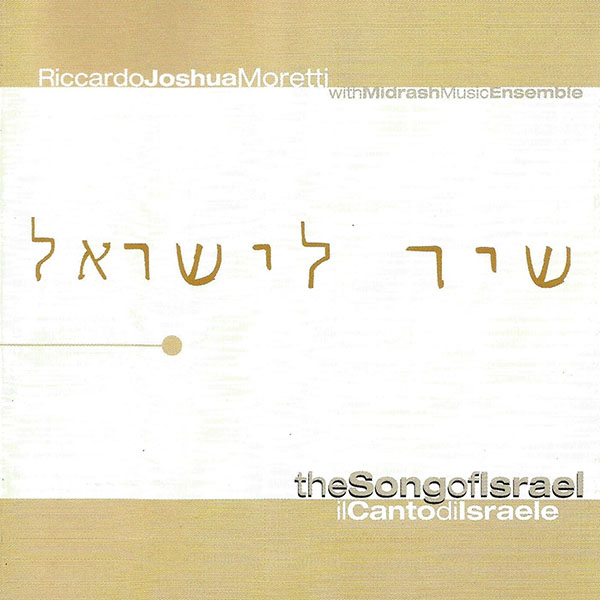


THE SONG OF ISRAEL
In "The song of Israel" Moretti faces klezmer tradition giving to it a new camera interpretation, edited, with a sofisticated sensitiveness, in collaboration with Emilio Ghezzi and Giacomo Scaramuzza.An extraordinary Italian Ensamble of classic soloists (Midrash Music Ensamble) performs in the ten original compositions and deserves a special mension for the versatile interpretation and performance so perfectly close to Moretti’s composition, very cultivated and popular at the same time.
Enrico Fubini, one of the greatest authority in the music philology, writes in the cd cover notes, that Moretti was able to freely link to klezmer although with an authentic jewish spirit and very personal accents, all this by keeping in mind the wide range of polarity within klezmer music moves (irony and melancholy but also umbridled joy and sweetness) and giving to his compositions " a great stlilistic unanimity that comes from his main use of a sweet,softly nostalgic register.
Fubini is right: it is just the nostalgy – a bit Rota’s way (and then, Fellini’s way)- the mood, the "Stimmung", the state of mind (it’s up to you)of the music of "The Song of Israel"- a song that looks like doesn’t need words, out of a gorgeous exception. The solemn "Cantica del Mare", from the Exodus performed by Rabbi Luciano Caro.
Moretti’s music it is really a music about the wandering, infected by the pathos of the distance (just another name for nostalgy) that describes, in form of emotion, the deepest animus of people who made from wandering, memory and desire a destiny.



